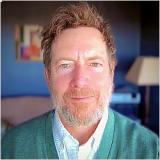Find a Therapist near Santa Fe, NM
There are a limited number of therapists in your area, but other distance therapists are available to help:
Find a Therapist in Santa Fe with GoodTherapy
It’s normal to experience mental health issues and relationship problems. Talking to a licensed therapist can help. Therapy can teach you more about yourself and your mental health concerns in a healing way. Many therapies are evidence-based and have been proven effective.
Since 2007, GoodTherapy has helped people like you connect with ethical, compassionate counselors and therapists. The therapists listed above, who practice therapy in Santa Fe, are trained to protect client confidentiality and privacy. In keeping with our high membership standards, these mental health professionals are also committed to eliminating the stigma that keeps many people from seeking help.
Beliefs about how much therapy costs may deter some people from finding a therapist. It’s a good idea to contact therapists you’re interested in and ask about insurance, sliding-scale fees, payment plans, and other options to stay within your budget.
Rest assured there are qualified therapists in Santa Fe who can treat a variety of concerns, including family conflict, relationship issues, anxiety, or depression. With our directory, the right therapist is easy to find.
List Your Practice on GoodTherapy
Are you a therapist or mental health professional looking for new ways to get referrals and market your practice in Santa Fe? Keeping up to date with professional requirements and increasing your online presence are just two of the many benefits of joining GoodTherapy. Start connecting with clients and earning online continuing education credits today!
About Santa Fe
Santa Fe is the seat of Santa Fe County and the capital of New Mexico. It is the fourth largest city in the state and covers 46 square miles. Situated at 7,000 feet above sea level, it is the highest capital in the United States. Santa Fe is the second oldest city in the nation after being founded in 1610.
Santa Fe has a population of 84,000 people. Fifteen percent of residents are foreign born. The racial composition of the population is 54% Hispanic, 40% white, 2% Native American, and 2% Asian. Roughly 27,000 people in Santa Fe speak Spanish.
Eighty-seven percent of residents in Santa Fe over the age of 25 have graduated from high school, and 41% have a bachelor’s degree. The median household income is $51,600. In Santa Fe, 17% of residents live below the poverty line.
Santa Fe is one of nine cities in the world to be chosen by UNESCO as a Creative City. More than 1 million people visit Santa Fe each year to experience its culture, ancient traditions, and art.
Mental Health in Santa Fe
In 2015, suicide was a leading cause of death for New Mexican youth aged 15-19. An estimated 9.7% of Santa Fe County youth attempted suicide. Over 4% of county youth were injured in suicide attempts.
Drug abuse is also a concern in the area. Santa Fe County has 32 drug overdose deaths per 100,000 people. This is almost double the U.S. rate of 16 overdose deaths per 100,000 people. Male county residents are roughly 1.5 times more likely to die from drug overdose than female residents.
References:
- About Santa Fe. (n.d.). Retrieved from https://www.santafenm.gov/about_santa_fe
- Health highlight report for Santa Fe County. (n.d.). Retrieved from https://ibis.health.state.nm.us/community/highlight/report/GeoCnty/49.html
- New Mexico suicide rate sees drop after years of increase. (2017, September 16). The Santa Fe New Mexican. Retrieved from http://www.santafenewmexican.com/news/health_and_science/new-mexico-suicide-rate-sees-drop-after-years-of-increase/article_7fff058c-d828-5f7b-8f6d-93b88e95467c.html
- QuickFacts: Santa Fe city, New Mexico. (n.d.). United States Census Bureau. Retrieved from https://www.census.gov/quickfacts/fact/table/santafecitynewmexico/PST045217
- Santa Fe. (n.d.). Encyclopedia Britannica. Retrieved from https://www.britannica.com/place/Santa-Fe-New-Mexico
- Santa Fe, NM. (n.d.). Data USA. Retrieved from https://datausa.io/profile/geo/santa-fe-nm









